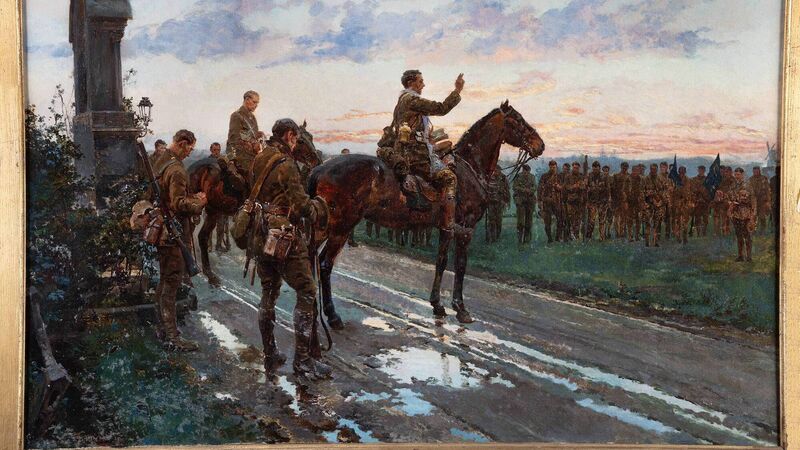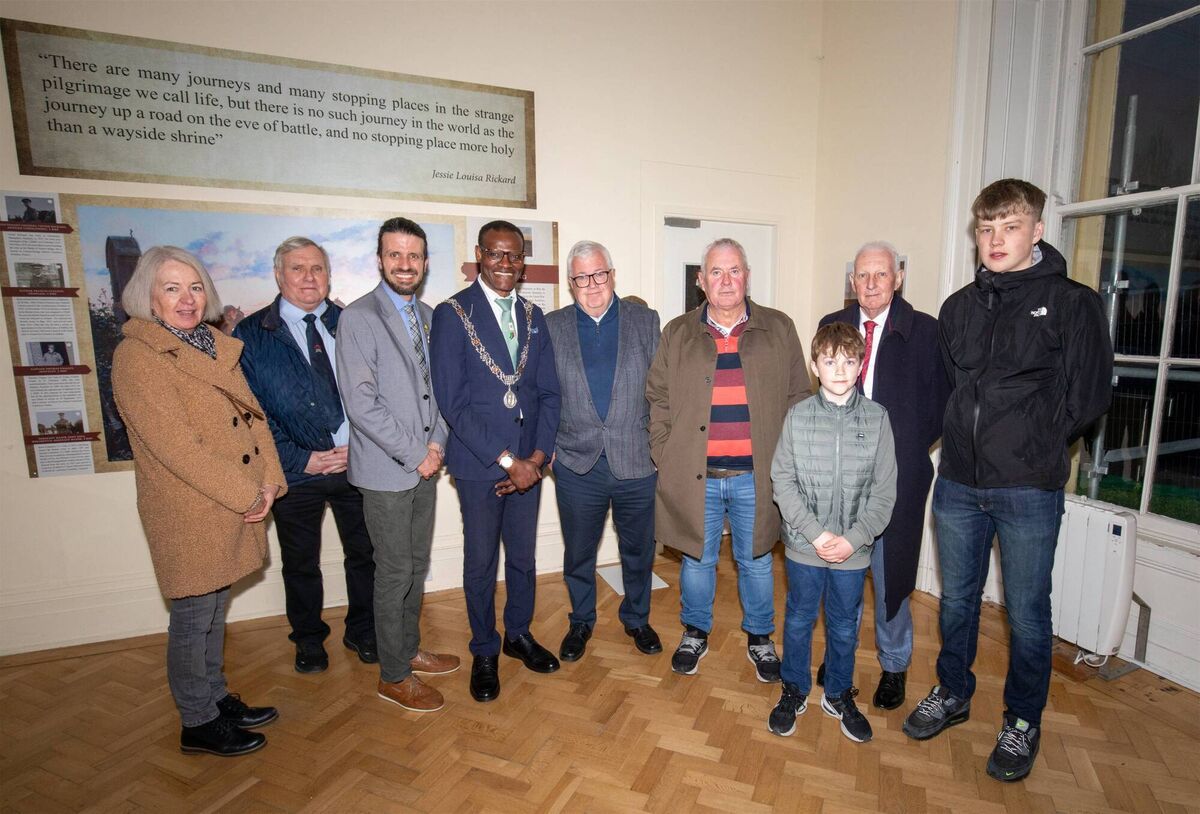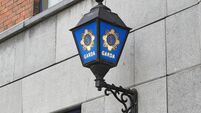Iconic First World War painting featuring Munster battalion goes on display in Cork museum

The Last General Absolution of the Munsters at Rue du Bois by Italian artist Fortunino Matania.
The earliest known painted copy of an iconic First World War painting has gone on public display for the first time in Cork.
The painting, , by Italian artist Fortunino Matania, is the main feature of a new exhibition at the Cork Public Museum to commemorate the centenary of the unveiling of the Cork War Memorial on the South Mall.
The painting depicts the 2nd Battalion of Royal Munster Fusiliers receiving general absolution from their chaplain, Father Gleeson, on the eve of battle on May 8, 1915.
The following day, the British Army lost 11,000 men during the Battle of Aubers Ridge — 300 of whom were from the 2nd Battalion of the Royal Munster Fusiliers. Of those 300, 95% were Irish, with at least 50 connected to Cork City and county.
The original painting is believed to have been lost in the bombing of London during the Second World War.
But the version on display at Cork Public Museum was commissioned from the artist in 1919 by Alfred Robinson to celebrate the safe return of his son from the war.
The painting stayed with the Robinson family until it was bought at auction last year by Willie and Mary Slattery from Dublin, who have now loaned it to Cork Public Museum for public display.

Museum curator Daniel Breen said he was delighted to be able to display this "wonderful and historic" painting to the public for the first time ever.
“The original is considered one of the most iconic paintings of the Great War and is internationally beloved for capturing the brutal futility of war, as well as illustrating the courage of the soldiers and the sacrifices made by their families,” he said.
The painting was inspired by the 1915 book, , written by Jessie Rickard, a well-known novelist and wife of Colonel Victor Rickard, one of the officers depicted in the painting and who was killed during the Battle of Aubers Ridge.
Although Dublin-born, Ms Rickard spent much of her life in Cork and is buried in Rathcooney cemetery.
The exhibition touches on the lives and experiences of some of the men depicted in the painting, and uses original objects and personal possessions to tell their stories, including that of Private Christy Barry, of Douglas Street, who was present for the last absolution featured in the painting, and who also lost his life on the battle field the following day.
The painting, and the exhibition tiled, , is on view at the Cork Public Museum in Fitzgerald's Park until May 22.





